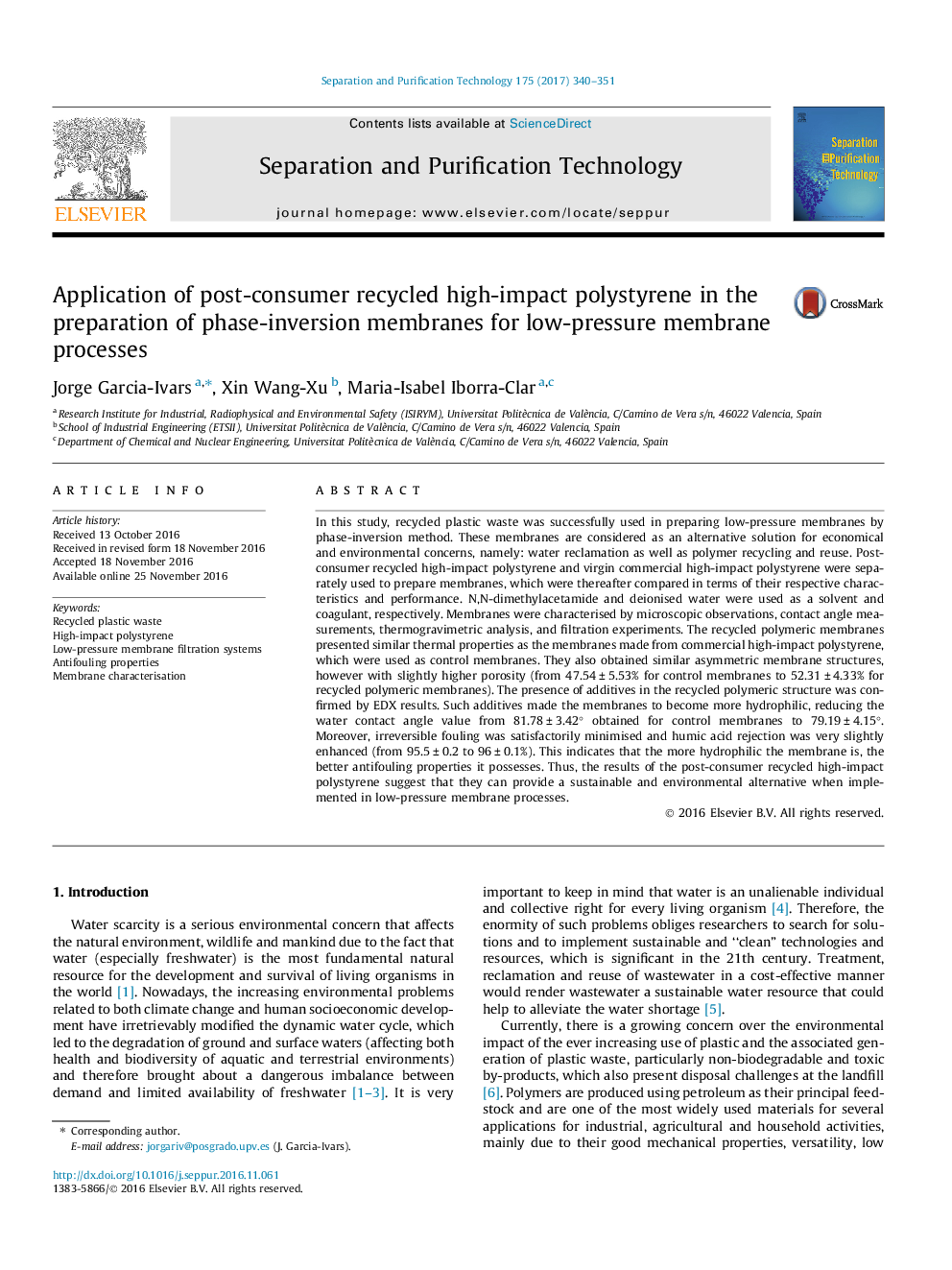| Article ID | Journal | Published Year | Pages | File Type |
|---|---|---|---|---|
| 4989993 | Separation and Purification Technology | 2017 | 12 Pages |
Abstract
In this study, recycled plastic waste was successfully used in preparing low-pressure membranes by phase-inversion method. These membranes are considered as an alternative solution for economical and environmental concerns, namely: water reclamation as well as polymer recycling and reuse. Post-consumer recycled high-impact polystyrene and virgin commercial high-impact polystyrene were separately used to prepare membranes, which were thereafter compared in terms of their respective characteristics and performance. N,N-dimethylacetamide and deionised water were used as a solvent and coagulant, respectively. Membranes were characterised by microscopic observations, contact angle measurements, thermogravimetric analysis, and filtration experiments. The recycled polymeric membranes presented similar thermal properties as the membranes made from commercial high-impact polystyrene, which were used as control membranes. They also obtained similar asymmetric membrane structures, however with slightly higher porosity (from 47.54 ± 5.53% for control membranes to 52.31 ± 4.33% for recycled polymeric membranes). The presence of additives in the recycled polymeric structure was confirmed by EDX results. Such additives made the membranes to become more hydrophilic, reducing the water contact angle value from 81.78 ± 3.42° obtained for control membranes to 79.19 ± 4.15°. Moreover, irreversible fouling was satisfactorily minimised and humic acid rejection was very slightly enhanced (from 95.5 ± 0.2 to 96 ± 0.1%). This indicates that the more hydrophilic the membrane is, the better antifouling properties it possesses. Thus, the results of the post-consumer recycled high-impact polystyrene suggest that they can provide a sustainable and environmental alternative when implemented in low-pressure membrane processes.
Related Topics
Physical Sciences and Engineering
Chemical Engineering
Filtration and Separation
Authors
Jorge Garcia-Ivars, Xin Wang-Xu, Maria-Isabel Iborra-Clar,
